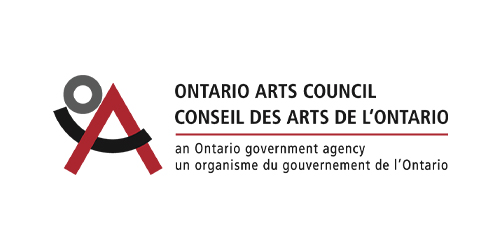Live performances: December 16–17, 2022
Now streaming: December 1-31, 2023
Koerner Hall, TELUS Centre for Performance and Learning
Myriam Leblanc soprano
Christopher Lowrey countertenor
Valerio Contaldo tenor
Brett Polegato baritone
Tafelmusik Baroque Orchestra & Chamber Choir
Directed by Ivars Taurins
There will be a 20-minute intermission between Parts I & II.
There will also be a very brief interval between Parts II & III—please remain in the hall.
Due to unforeseen circumstances, soprano Karina Gauvin was unable to sing the performances. We are grateful to Myriam Leblanc for stepping in at short notice as soprano soloist.
Tafelmusik Chamber Choir
Soprano Jane Fingler, Roseline Lambert, Carrie Loring, Meghan Moore, Susan Suchard, Sinéad White, Jennifer Wilson
Alto Kate Helsen, Simon Honeyman, Valeria Kondrashov, Peter Koniers, Peter Mahon, Jessica Wright
Tenor Paul Jeffrey, Will Johnson, Michael Johnston, Robert Kinar, Cory Knight, Sharang Sharma
Bass Alexander Bowie, Parker Clements, Nicholas Higgs, Alan Macdonald, Graham Robinson
Rehearsal accompanist: Andrei Streliaev
Tafelmusik Baroque Orchestra
Violin I Christopher Verrette, Elizabeth Loewen Andrews, Joseph Lanza, Johanna Novom, Julia Wedman
Violin II Geneviève Gilardeau, Patricia Ahern, Emily Eng, Valerie Gordon
Viola Patrick G. Jordan, Brandon Chui, Shannon Knights
Violoncello Keiran Campbell, Margaret Gay, Matt Zucker
Double bass Sue Yelanjian, Francis Palma-Pelletier
Oboe John Abberger, Gillian Howard
Bassoon Dominic Teresi
Trumpet Alexis Basque, Norman Engel
Timpani David Campion
Harpsichord Olivier Fortin
Organ Charlotte Nediger
George Frideric Handel
Messiah
Libretto by Charles Jennens
Part the FIRST
Sinfonia
Accompagnato (Tenor)
Comfort ye, comfort ye my people, saith your God. Speak ye comfortably to Jerusalem, and cry unto her, that her warfare is accomplished, that her iniquity is pardoned. The voice of him that crieth in the wilderness; prepare ye the way of the Lord; make straight in the desert a highway for our God.
Air (Tenor)
Ev’ry valley shall be exalted, and ev’ry mountain and hill made low; the crooked straight and the rough places plain.
Chorus
And the glory of the Lord shall be revealed, and all flesh shall see it together: for the mouth of the Lord hath spoken it.
(Isaiah 40:1–5)
Accompagnato (Bass)
Thus saith the Lord, the Lord of Hosts: Yet once a little while and I will shake the heavens and the earth, the sea and the dry land. And I will shake all nations; and the desire of all nations shall come.
The Lord, whom ye seek, shall suddenly come to his temple, even the messenger of the covenant,
whom ye delight in; behold, he shall come, saith the Lord of Hosts.
Air (Alto)
But who may abide the day of his coming, and who shall stand when he appeareth? For he is like a refiner’s fire.
Chorus
And he shall purify the sons of Levi, that they may offer unto the Lord an offering in righteousness.
(Malachi 3:1–3)
Recitative (Alto)
Behold, a virgin shall conceive and bear a son, and shall call his name Emmanuel, God with us.
(Isaiah 7:14/St. Matthew 1:23)
Air (Alto) & Chorus
O thou that tellest good tidings to Zion, get thee up into the high mountain. O thou that tellest good tidings to Jerusalem, lift up thy voice with strength; lift it up, be not afraid; say unto the cities of Judah, behold your God! Arise, shine, for thy light is come, and the glory of the Lord is risen upon thee.
(Isaiah 40:9/60:1)
Accompagnato (Bass)
For behold, darkness shall cover the earth, and gross darkness the people; but the Lord shall arise upon thee, and his glory shall be seen upon thee. And the gentiles shall come to thy light, and kings to the brightness of thy rising.
(Isaiah 60: 2–3)
Air (Bass)
The people that walked in darkness have seen a great light; and they that dwell in the land of the shadow of death, upon them hath the light shined.
(Isaiah 9:2)
Chorus
For unto us a child is born, unto us a son is given, and the government shall be upon his shoulder; and his name shall be called Wonderful, Counsellor, The mighty God, The everlasting Father, The Prince of Peace.
(Isaiah 9:6)
Pifa
Recitative/Accompagnato (Soprano)
There were shepherds abiding in the field, keeping watch over their flocks by night. And lo, the angel of the Lord came upon them, and the glory of the Lord shone round about them, and they were sore afraid. And the angel said unto them: Fear not, for behold, I bring you good tidings of great joy, which shall be to all people. For unto you is born this day in the city of David a saviour, which is Christ the Lord. And suddenly there was with the angel, a multitude of the heavenly host, praising God, and saying:
Chorus
Glory to God in the highest, and peace on earth, good will towards men.
(St. Luke 2:8–14)
Air (Soprano)
Rejoice greatly, O daughter of Zion; shout, O daughter of Jerusalem! Behold, thy King cometh unto thee; he is the righteous Saviour, and he shall speak peace unto the heathen.
(Zecharaiah 9:9–10)
Recitative (Alto)
Then shall the eyes of the blind be opened, and the ears of the deaf unstopped. Then shall the lame man leap as an hart, and the tongue of the dumb shall sing.
(Isaiah 35:5–6)
Duet (Alto/Soprano)
He shall feed his flock like a shepherd; and he shall gather the lambs with his arm, and carry them in his bosom, and gently lead those that are with young.
Come unto him, all ye that labour, come unto him that are heavy laden, and he will give you rest.
Take his yoke upon you, and learn of him, for he is meek and lowly of heart, and ye shall find rest unto your souls.
(Isaiah 40:11/St. Matthew 11:28–29)
Chorus
His yoke is easy, and his burthen is light.
(St. Matthew 11:30)
Intermission
Part the Second
Chorus
Behold the Lamb of God, that taketh away the sin of the world.
(St. John 1:29)
Air (Alto)
He was despised and rejected of men, a man of sorrows and acquainted with grief. He gave his back to the smiters, and his cheeks to them that plucked off the hair: He hid not his face from shame and spitting.
(Isaiah 53:3/50:6)
Chorus
Surely he hath borne our griefs, and carried our sorrows! He was wounded for our transgressions, he was bruised for our iniquities; the chastisement of our peace was upon him.
And with his stripes we are healed.
All we like sheep have gone astray; we have turned every one to his own way. And the Lord hath laid on him the iniquity of us all.
(Isaiah 53:4–6)
Accompagnato (Tenor)
All they that see him laugh him to scorn; they shoot out their lips, and shake their heads, saying:
(Isaiah 40:9/60:1)
Chorus
He trusted in God that he would deliver him; let him deliver him, if he delight in him.
(Psalm 22:7–8)
Accompagnato (Tenor)
Thy rebuke hath broken his heart: he is full of heaviness. He looked for some to have pity on him,
but there was no man, neither found he any to comfort him.
(Psalm 69:20)
Arioso (Tenor)
Behold, and see if there be any sorrow like unto his sorrow.
(Lamentations 1:12)
Accompagnato (Soprano)
He was cut off out of the land of the living: for the transgressions of thy people was he stricken.
(Isaiah 53:8)
Air (Soprano)
But thou didst not leave his soul in hell; nor didst thou suffer thy Holy One to see corruption.
(Psalm 16:10)
Chorus
Lift up your heads, O ye gates; and be ye lift up, ye everlasting doors; and the King of glory shall come in. Who is this King of glory? The Lord strong and mighty, the Lord mighty in battle. Lift up your heads, O ye gates; and be ye lift up, ye everlasting doors; and the King of glory shall come in. Who is this King of Glory? The Lord of hosts, he is the King of glory.
(Psalm 24:7–10)
Recitative (Tenor)
Unto which of the angels said he at any time: Thou art my son, this day have I begotten thee?
Chorus
Let all the angels of God worship him.
(Hebrews 1:5–6)
Air (Alto)
Thou art gone up on high; thou hast led captivity captive, and received gifts for men; yea, even for thine enemies, that the Lord God might dwell among them.
(Psalm 68:18)
Chorus
The Lord gave the word; great was the company of the preachers.
(Psalm 68:11)
Air (Soprano)
How beautiful are the feet of them that preach the gospel of peace, and bring glad tidings of good things.
(Isaiah 52:7/Romans 10:15)
Chorus
Their sound is gone out into all lands, and their words unto the ends of the world.
(Romans 10:18/Psalm 19:4)
Air (Bass)
Why do the nations so furiously rage together, and why do the people imagine a vain thing? The kings of the earth rise up, and the rulers take counsel together against the Lord, and against his anointed.
Chorus
Let us break their bonds asunder, and cast away their yokes from us.
Recitative (Tenor)
He that dwelleth in heaven shall laugh them to scorn; the Lord shall have them in derision.
Air (Tenor)
Thou shalt break them with a rod of iron; thou shalt dash them in pieces like a potter’s vessel.
(Psalm 2:1–4/9)
Chorus
Hallelujah: for the Lord God omnipotent reigneth. The kingdom of this world is become the kingdom of our Lord, and of his Christ; and he shall reign for ever and ever. King of Kings, and Lord of Lords. Hallelujah!
(Revelation 19:6, 16/11:15)
There will be a very brief interval between Parts II & III.
Please remain in the hall.
Part the Third
Air (Soprano)
I know that my redeemer liveth, and that he shall stand at the latter day upon the earth. And though worms destroy this body, yet in my flesh shall I see God. For now is Christ risen from the dead, the first fruits of them that sleep.
(Job 19:25–26/I Corinthians 15:20)
Chorus
Since by man came death, by man came also the resurrection of the dead. For as in Adam all die, even so in Christ shall all be made alive.
Accompagnato (Bass)
Behold, I tell you a mystery; we shall not all sleep, but we shall all be changed in a moment, in the twinkling of an eye, at the last trumpet.
Air (Bass)
The trumpet shall sound, and the dead shall be raised incorruptible, and we shall be changed.
Recitative (Alto)
Then shall be brought to pass the saying that is written: Death is swallowed up in victory.
Duet (Alto/Tenor)
O death, where is thy sting? O grave, where is thy victory? The sting of death is sin, and the strength of sin is the law.
Chorus
But thanks be to God, who giveth us the victory through our Lord Jesus Christ.
(I Corinthians 15:21–22, 51–57)
Air (Soprano)
If God be for us, who can be against us? Who shall lay anything to the charge of God’s elect? It is God that justifieth, who is he that condemneth? It is Christ that died, yea rather, that is risen again, who is at the right hand of God, who makes intercession for us.
(Romans 8:31–34)
Chorus
Worthy is the Lamb that was slain, and hath redeemed us to God by his blood, to receive power, and riches, and wisdom, and strength, and honour, and glory, and blessing.
Blessing and honour, glory, and power be unto him that sitteth upon the throne, and unto the Lamb, for ever and ever.
Amen.
(Revelation 5:12–14)
Program Notes
by Charlotte Nediger
Handel composed Messiah in just a few weeks in the late summer of 1741. Intended originally for performances during Lent, it was premiered in Dublin on April 13, 1742 at the Musick Hall in Fishamble Street. Handel directed the performance, and attendance was so great that ladies were implored “not to come with hoops” and gentlemen to leave their swords at home to make “room for more company.” Praise resounded for both the work and its performance, and an extra performance was added. It took a few years for the work to take hold in London, as some were disturbed by the idea of presenting such a sacred subject in a theatre. Handel eventually turned to Messiah for benefit performances for the Foundling Hospital and thus stilled the controversy. London audiences applauded the work, and by the time of Handel’s death in 1759, it had become the most frequently performed of all his oratorios, a position it has never relinquished.
Messiah eventually came to be associated with the Christmas season, and the wealth and variety of choruses in the work inspired amateur choirs to embrace it in communities large and small. The first performances in Toronto took place in December 1857. It quickly became a regular feature of the Toronto concert season, and when Massey Hall opened its doors in 1894, the first work performed was Messiah, with a 500-member chorus and the 70-member Grand Festival Orchestra, and with 3,500 people in attendance. In recent decades it has become common to trim the work by omitting movements, but for our concert performances we are pleased to present the entire oratorio.
As specialists in period performance, we perform on instruments from the 18th century (or accurate reproductions), and retain Handel’s original orchestration. The orchestration is in fact quite modest for a work of such great impact. The arias are performed by strings alone, with oboes joining in the choruses. Bassoon and keyboard instruments round out the bass section. Arguably the most important instruments on stage are those that are heard at only a few key dramatic moments: the trumpets and timpani. Handel includes trumpets briefly “from a distance” as part of the “heavenly host” in the nativity sequence in Part I. He holds off until the “Hallelujah” chorus at the end of Part II to have trumpets and timpani join the orchestra. The glorious trumpet solo in “The trumpet shall sound” carries us to the final resounding “Worthy is the Lamb” and “Amen.” Handel understood drama and the power of music to stir the human soul. Each performance is a journey, and this is a journey we were honoured to share with you each year from 1980 to 2019. This year is a particularly special one, as our return to the concert stage allows us to once again welcome you to our performances of this remarkable work.
Thank You to our Generous Donors
Tafelmusik is deeply grateful to our generous donors who have continued to support us through this challenging time. Your support has inspired us to remain strong and to deliver joy to our community through our music, and will enable us to persevere until we can once again perform live for you, our cherished patrons. Thank you for believing in Tafelmusik and in the power and beauty of music.
If you would like to make a gift, please click here or contact us at donations@tafelmusik.org.
Thank you to our government sponsors



